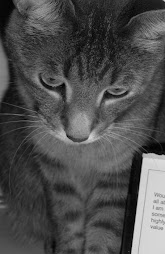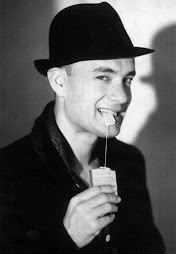
The Unit
Ninni Holmqvist

rating: 8.5 out of 10 "books"
I saw a summary for this book on an ALA online booklist website once and have always wanted to read it. The only problem was the few copies my local library services had always seemed to be checked out. I had actually seen this book before I even heard mention of “The Handmaid’s Tale” by Margaret Atwood (reviewed further down my site), and when I was finally able to get my hands on a copy, I devoured this story! So without further adieu, here’s my review and thoughts on “The Unit.”
The main character of “The Unit,” Dorrit, has reached her 50th birthday at the beginning of the story. She recalls how she can hardly believe this benchmark has come so fast. She can remember like it were yesterday, when she’d just moved into her house at 42 years old and still regarded the future with optimism. “I still believed and hoped that it wasn’t too late to have a child. Or at least to start earning money from my profession and become financially secure, or find a partner, someone who would love me and want to live with me.” Dorrit has never been in love nor had someone love her other than her dog, Jock. A lot of this, we find, seems to stem from her upbringing.
Dorrit lives in a world in which, as she explains it “the housewife and her male provider have not only been out of fashion for a long time, they have been eradicated. And children are no longer a drag, a hindrance, for anyone. There is no longer the risk of ending up as a dependent, or falling behind on the salary scale, or losing skills in the workplace. There is no longer any excuse not to have children. Nor is there any longer an excuse not to work when you have children.” For in this dystopian society, everyone is equal; for the most part. You see, society is based on a sort of scale that measures people’s worth based on what they can offer the world in terms of children, financial prosperity, and success; anything that can benefit the future of society. In this type of world, men are ashamed if they openly show off their physical strength and women are scorned if they dare to be physically weak or accept help with heavy jobs. It is actually against the law for either party to take part in such activities.
So what it comes down to is: those who are “needed” and those who are not or, in other words “dispensable.” Dorrit finds herself amongst the latter, and therefore required to leave her world and spend her remaining life at the “Second Reserve Band Unit for biological material.” Women who are 50 years old and do not have a husband, children, or any significant accomplishments to speak of and 60 year old men with no wives, children or successes are all sent to “The Unit.” Here, their everyday lives revolve around scientific experiments and organ donations because those who are “dispensable” constitute a reserve, that when, in the event that a seriously ill “needed” person requires an organ “donation,” the “dispensable” person would provide the matching organ. The longer a person remains in “The Unit,” the more risky the experiments he or she is expected to participate in, while at the same time he or she moves closer to donating vital organs. The people of “The Unit” refer to this as the “final donation,” because the removal of their vital organ ultimately results in the “dispendable’s” death.
However, the treatment of the “dispensables” is hardly uncomfortable. Their living arrangements are very comfortable. Each person has their own apartment with all the amenities. They are allowed to bring any personal items they choose, although they can have no contact with the outside world (no telephone, email, text messaging, etc.). People in “The Unit” can pursue any hobby or professional activity they wish and never have to worry about finances again because everything is taken care of for them. There is a garden, library, cinema, theater, art gallery, café, restaurant, sports complex, etc. Above all, as the director of “The Unit” explains it, “you have each other. For the majority of you it isn’t until you come here that you will experience the feeling of belonging, or being part of something with other people, which those of us who are needed often take for granted.”
Dorrit, like everyone else just entering “The Unit” is very scared, but she tries to keep her head up and distract herself from what is going on by keeping busy at the sports complex. She begins to realize that the experiments are humane and the workers of “The Unit” try to keep them alive as long as possible before the “dispensables” are sent in to make their final donations. But even realizing that is not enough to keep Dorrit’s spirits up all the time. She explains to her psychologist that, “I used to believe that my life belonged to me. Something that was entirely at my disposal, something no one else had any claim on, or the right to have an opinion on. But I’ve changed my mind. I don’t own my life at all; it’s other people who own it.” The only thing that gets her though her situation, what makes her believe what she’s doing is meaningful, is to tell herself she’s doing it for the good of “the needed.” Things get even more complicated however, when she falls in love with Johannes, a fellow writer like herself. Saying goodbye to your "Unit" friends(the only friends you've ever really had)is hard, but this story begs the question: how can you deal with having to say goodbye to the only person you've ever loved?
"The Unit" was really amazing. Even with how horrible the overall idea of the story was to imagine, I found it one hundred times better to think about than what occurred in “The Handmaid’s Tale.” Like another reviewer put it, I really enjoyed the characters, even if none of them were very memorable. This was another one of those “speculative fiction” stories, where the events presented in the story, while although appearing all science fictiony, are actually not all that far off from becoming true. I could totally see this happening in the near future, bizarrely enough. Of course, the one thing I did not like about this book was the ending. Yes, I am yet another reader who was unsatisfied with the ending of this book. I mean, I’m all for books having unpredictable endings, but this one just killed me. That cost this story points in my book. I’d like to rank “The Unit” by Ninni Holmqvist a 10 out of 10 “books,” but because of the above mentioned, combined with the less “wow” factor I felt between this story and “The Handmaid’s Tale,” I am going to have to give “The Unit” a rating of 8.5 out of 10 “books.” I do suggest anyone and everyone read this book though!


















No comments:
Post a Comment